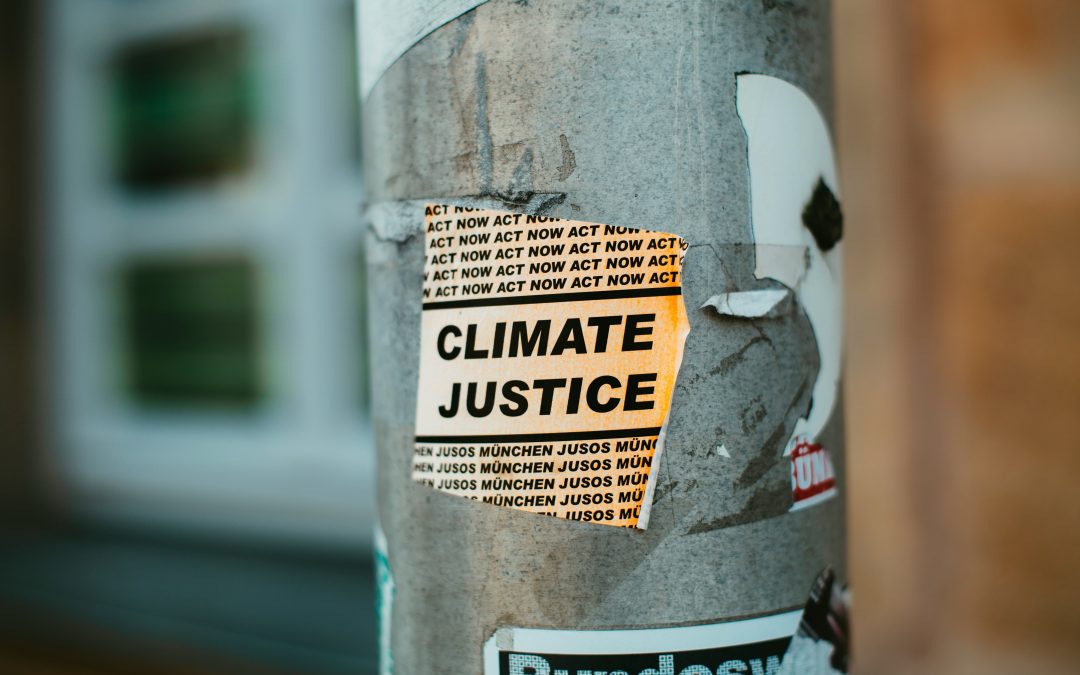by Yusra Suedi (Law) & Clare Cummings (Global Development Institute), Climate & Justice Study Group
Between small island states formally requesting the International Criminal Court to recognise ecocide as a crime, 2000 Swiss women suing Switzerland for climate harm before the European Court of Human Rights and the United Nations debating the establishment of a special rapporteur on climate justice, it’s been a busy time for climate justice. In fact, practice would suggest that there has never been more momentum for climate justice through human rights and criminal legal systems, domestic and international.
Against this backdrop, the interdisciplinary Climate & Justice study group invited human rights barrister Paul Clark (Garden Court Chambers) to share his perspective on the potential for legal strategies to support climate justice. Paul began by examining two key legal developments: first, in holding states to account for their failure to act on climate change and second, in holding states responsible for harms caused by climate change.
Two celebrated cases have demonstrated the power of organised citizens to sue their governments over climate inaction. In 2019, a case brought by 886 Dutch citizens resulted in a ruling, upheld by the Dutch Supreme Court, that the Dutch government has a legal duty to urgently and significantly cut its greenhouse gas emissions. This case and the case brought in 2020 by a group of Swiss women to the European Court of Human Rights (ECHR) found that states have binding legal obligations, based on international human rights law, to reduce greenhouse gas emissions. But, what now?
In neither case could the court specify how the Swiss or Dutch governments must go about reducing emissions nor are there mechanisms for enforcing the rulings. These limitations were seen last June when the Swiss parliament voted to reject the ECHR ruling, arguing that the government was already doing enough. The inability of international courts to enforce rulings, whether over climate inaction or other gross acts of negligence or harm, is unfortunately well known.
Demands for the Rome Statute of the International Criminal Court (ICC) to recognise ecocide as a crime have raised hopes that governments can be held accountable. Yet, Paul pointed out that the Statute already recognises environmental harm within its definitions of genocide and crimes against humanity. The question, then, is why the ICC has not yet prosecuted any states for the destruction of conditions for life caused by their continued release of climate changing emissions. The political means are again lacking.
Courts are rarely sites of radical decision-making. Paul described the barriers he faced when representing the group of Portuguese children in Duarte Agostinho and others v 33 States before the ECHR. This innovative case challenged the climate targets and policies of multiple European states, aiming for a ruling that would acknowledge the shared but differentiated responsibility of states to act on climate change. Yet, Paul explained how the Court could not move past its own reservations, understandings of extraterritoriality and fear of ‘opening the floodgates’ to more cases and so the case was rejected.
Legal strategies, thus far, seem to offer little hope for immediate government action on emissions, not to mention addressing the much bigger question of climate (in)justice. Courts are clearly not capable of answering the deeply political question of which states (and which other actors) are most responsible for addressing the climate crisis, let alone what form climate action should take.
However, the ever-growing body of climate litigation should not be dismissed as a waste of time. Paul asserted that the courts remain an important arena for debate and public contention of government (in)action. The dedication of the Swiss women, Dutch citizens, Portuguese children, their lawyers and many others to find new, creative ways of holding their governments accountable are valuable political processes that generate much needed scrutiny and pressure for urgent climate action. The struggle for climate justice within and beyond the courts is far from over.
Listen to Paul’s lecture in full on our YouTube channel.
About the Climate and Justice Study Group
As the climate crisis intensifies, we are witnessing a rise in climate-related litigation in jurisdictions across the world. However, how law influences opportunities to protect environments and secure climate justice is multifaceted. Legal challenges over environmental harm occur across political boundaries, and between states, private actors, civil society organisations and social movements. New environmental legislation, changes in the policing of protests and novel corporate investment clauses are all emblematic of how struggles for climate justice are being ‘judicialised’.
The Climate and Justice Study Group brings together expertise from across the humanities and natural sciences to develop transdisciplinary knowledge and research into this agenda. If you’d like to keep up with the group’s events and activities, join their LinkedIn page or email Clare Cummings (clare.cummings@manchester.ac.uk) and ask to join the mailing list.
Top image: Photo by Markus Spiske on Unsplash
Note: This article gives the views of the author/academic featured and does not necessarily represent the views of the Global Development Institute as a whole.
Please feel free to use this post under the following Creative Commons license: Attribution-NonCommercial-NoDerivatives 4.0 International (CC BY-NC-ND 4.0). Full information is available here

